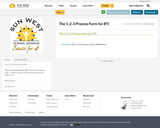
The 1-2-3 Process Form for RTI
- Subject:
- Education
- Material Type:
- Primary Source
- Date Added:
- 09/19/2018

The 1-2-3 Process Form for RTI
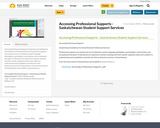
Accessing Professional Supports
Saskatchewan Guidelines for School Division Professional Services
Professional supports may include, but are not limited to speech-language pathologists, psychologists, social workers and occupational therapists. Professionals are required to maintain standing with their specific regulatory body and to adhere to professional practice guidelines and ethics for their profession’s practice in Saskatchewan.
From the Government of Saskatchewan and available at saskatchewan.ca

This Module highlights classroom considerations that promote access to the general education curriculum for students with disabilities (est. completion time: 1.5 hours).

This Module provides an overview of accommodations for students with disabilities (est. completion time: 1 hour).

The resources in this Module offer helpful tips on setting up the physical aspects of your classroom and will introduce types of equipment used by students with visual disabilities (est. completion time: 1 hour).
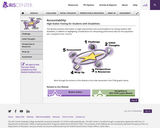
This Module presents information on legal requirements and accommodations for testing students with disabilities, in addition to highlighting considerations for interpreting performance data for this population (est. completion time: 2 hours).
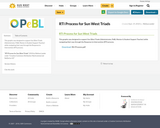
This graphic was designed to support Sun West Triads (Administrator, PeBL Mentor & Student Support Teacher) while navigating their way through the Response to Intervention (RTI) process.
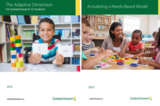
"This document, The Adaptive Dimension for K-12 Students (2023) is a renewal of the foundational document The Adaptive Dimension for K-12 Students (2017) and its predecessor The Adaptive Dimension in Core Curriculum (1992). The Adaptive Dimension for K-12 Students (2023) is designed to assist educators in making decisions to support the achievement of all students within the context of Saskatchewan’s curricula."These documents are from the Saskatchewan Ministry of Education.

This Module offers an overview of assistive technology (AT) and explores ways to expand students' access to it in the classroom (est. completion time: 2 hours).
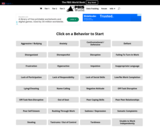
Select the student behaviour to begin. Then you will work through a series of descriptions and suggestions for what you can do to help that student.
You can look at interventions for Tier 1, Tier 2, Tier 3.
Each intervention suggested for a behaviour is then "clickable" and more information is provided on why to use this intervention, and how to do it.
This site is amazing!
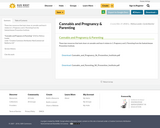
These two resources that look closer at cannabis and how it relates to 1. Pregnancy and 2. Parenting from the Saskatchewan Prevention Institute.

The following presentation and resource was used to help create a shared vision with Sun West Triads (Administor, PeBL Mentor & Student Support Teacher).

As this is a living free resource, you are required to enter your email so that you can receive updates as they happen.
When reviewing curricula for Tier I instruction, it is essential to ensure they do not include instructional practices that are not aligned with the scientific evidence base of how children learn to read.
The Curriculum Evaluation Guidelines are designed to highlight any non-aligned practices, or “red flags,” that may be present in the areas of:
- Word Recognition
- Language Comprehension
- Reading Comprehension
- Writing
- Assessment
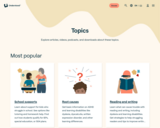
What You’ll Learn
Snapshot: What Executive Functioning Issues Are
Executive Functioning Issues
Signs and Symptoms
Other Issues That Can Co-Occur With Executive Functioning Issues
Possible Causes of Executive Functioning Issues
How Executive Functioning Issues Are Diagnosed
How Professionals Can Help With Executive Functioning Issues
How You Can Help Your Child With Executive Functioning Issues

Looking for some basic courses in conversational American Sign Language? Check out these self-paced free courses developed by the Oklahoma School for the Deaf, taught by their ASL Specialist.
Courses being offered are:
American Sign Language I
American Sign Language II
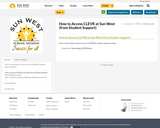
This is a cheat sheet on how to access CLEVER for student support teachers.
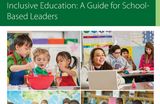
Responsive Instruction Modules: Classroom Level Support
Module 1: School-wide Planning - Making Supports and Services a Priority
Module 2: Reading Instruction - Critical Elements
Module 3: Instruction in Mathematics - Effective Instructional Practices
Module 4: Written Expression - Effective Instructional Practices
Inclusive Education Modules
Module 1: School-wide Planning - Making Supports and Services a Priority
Module 2: Fostering Inclusion - Understanding the Classroom Teacher's Role
Module 3: Instructional Support - Engaging Students and Classroom Teachers
Responsive Instruction Modules: Targeted/Group Approaches
Module 1: Targeting Reading Instruction - Knowing Our Learners
Module 2: Targeting Mathematics Instruction - Knowing Our Learners
Module 3: Targeting Written Expression Instruction
Supporting Students with Intensive Needs in the Classroom
Intellectual Disability
Physical Health Impairment
Bipolar Depressive, Anxiety or Related Disorders
Substance Related or Addictive Disorders
Autism Spectrum Disorder
Deaf or Hard of Hearing
Orthopaedic Disabilities
Neurodevelopmental Disorder Associated with Prenatal Substance Exposure
Blind or Visually Impaired
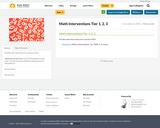
Possible math interventions for each level of RTI.
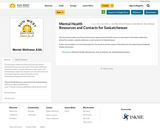
This document outlines all of the provincial and regional mental health resources and contact information (addresses, phone/fax numbers, website addresses, email contacts) for Saskatchewan.
It gives the emergency or crisis information for the province and the contact information for the Saskatchewan Regional Health Authorities.

1 in 5 Canadians Experience Mental Illness in Any Given Year. We All Know Someone.
And yet, one of the biggest issues in our health care system – and society at large – is that mental health is not taken as seriously, and treated as urgently, as physical health. But when you hear the stories, and see the impact mental illness has on the lives of so many around us, it's hard to stand idly by. Together, we can and must change the way mental health is treated not just in Canada, but around the world. We invite you all to join the movement. Watch the videos. Share the content. Donate now.
#MentalHealthIsHealth